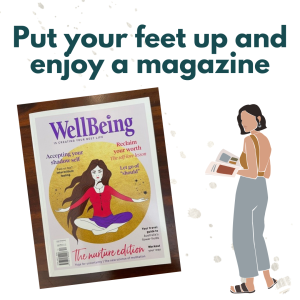Updating A Manga Collection
Manga. My students just love it, can’t get enough of it. But interest has dropped slightly recently and I realised it was time to update our collection to reinvigorate the love.
PASSIONATE ABOUT SCHOOL LIBRARIES
Manga. My students just love it, can’t get enough of it. But interest has dropped slightly recently and I realised it was time to update our collection to reinvigorate the love.
I am actually shocked it has taken me this long to write this post about weeding. Weeding is one of my absolute favourite collection management tasks.
Weeding is also known as deaccessioning, culling or deselection. It’s the process of carefully removing items from your school library collections using a specific criteria that meets your collection development policy.
We all know the importance of a diverse collection. At least, theoretically. It might be something we mention in our collection development policy, or nod our heads to during a webinar. Maybe we’ve even put a diversity collection audit on our to-do list. But in the busyness of daily school library life, diverse collection development and promotion can sometimes slip.
There are so many benefits of a genrefied non-fiction collection. I can highly recommend it, but if you are just starting out or are facing a large non-fiction collection, knowing where to start can be daunting. Here’s my step by step guide to genrefying a non-fiction collection.
Non-fiction is seeing a bit of a resurgence in recent years and I am very much here for it. I love non-fiction and think big, beautiful and relevant collections have so much to offer staff and students of all ages.
But how best to present and organise your non-fiction collection? Would a genrefied collection offer the most for your students?
It has been a while since I last shared anything on my website. I’ve had, what I think, is a petty good reason. This term has been entirely focused on moving into our brand new secondary school library space. I am currently the Head of Library Services at St Paul’s School and we have two school libraries on the campus. A junior school library and a secondary school library space. Last year, in the term 3 holiday break, my AmazingLibraryTech and I moved the secondary school library into a temporary location in the staff lounge area (usually used for meetings and special events). It meant boxing up all of our belongings, having our collection and shelving packed up and stored offsite, and keeping just a tiny live collection with us.
I was reading a recently published book about school librarianship and was surprised to discover a few throwaway comments about genrefication. It was represented negatively and raised the usual comments you might see on Facebook posts or in email lists, arguing against genrefication. I’ve decided to call out some of these comments and write my responses and thoughts to each of them. I’ve worked in many school libraries that have both genrefied collections and collections in traditional layouts. I am unashamedly for genrefication, but I have also been in schools where we chose not to genrefy some collections. It just wasn’t for the reasons below, and here’s why.
It’s the end of the school year and that means it’s annual report time. Or does it?
When I mentioned to a colleague this year that I needed to put together the library’s annual report, I was a little shocked by their reply – “Why bother. No one is going to read it.”
It made me reflect on why I create an annual report each year and why I firmly believe it is worth the time and effort to create an annual report.
Do magazines belong in the school library? It’s not really a question I ever asked myself until recently when it came time to audit our magazine subscriptions. But in our changing world, do magazines still belong in school libraries? If student interest drops, is it time to unsubscribe?
The first school library I volunteered and later worked in had a lovely magazine collection. It also had a most magnificent non fiction collection, but that’s another post entirely. The magazines were well used, as indicated by loan statistics and student use for browsing and reading during reading lessons.

This year, when I took over the library at my current library, I undertook a bit of an audit of the magazine collection. The magazines in the secondary library were hardly touched, let alone borrowed. Some of this could attributed to our new location while we awaited renovations. The magazines had to be tucked into a back corner. But stats from the previous years demonstrated loans half of that from my first school and only 12 loans total for magazines from the secondary library. It wasn’t for lack of promotion or choices. We had over 25 magazines in the secondary library and just a few in the junior library. Yet the interest and use of magazines in the junior library was huge. Massive loan stats, sneaky visits from junior students to the secondary library to borrow some of our titles, interest and love for magazines from the junior students was high. Continue reading
I love graphic novels but that love doesn’t come close to how much my students love graphic novels. They adore them. I’ve seen that time and again at all the school libraries I’ve worked in. However, their engagement with the graphic novel collection always varied and that’s because the graphic novel collections in all of those libraries varied significantly. Some were tidy and small, others large and outdated and one was big, plentiful and beautiful and let me tell you the students adored it!!
So, when I took over as head of library this year, I knew one of the first things I wanted to do was show the graphic novel collection some love. Lots of love.
© 2024 Madison's Library
Theme by Anders Noren — Up ↑